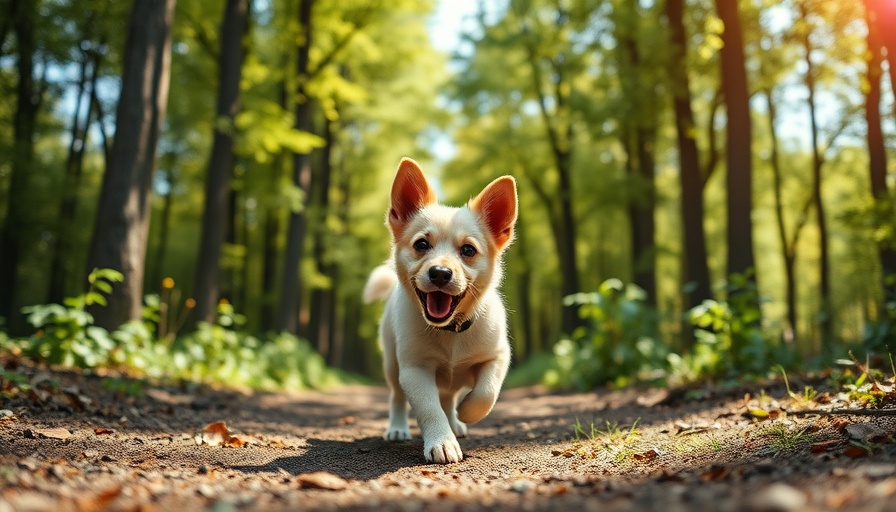
Ensuring a Smooth Recovery: The Importance of Post-Surgery Exercise
For pet owners, watching their furry friends recover from surgery can be a challenging experience. One important aspect of their recovery is appropriate exercise, which can be pivotal for healing. After surgery, your dog may feel lethargic and unmotivated, but gentle and suitable exercise can significantly benefit their recovery process.
Consulting Veterinary Guidance for Your Dog's Needs
It's essential to consult with your veterinarian about the right type and amount of exercise your dog should undertake after surgery. Veterinary guidance is crucial as it helps you understand your pet’s specific needs, considering their age, breed, size, and surgical procedure. Regular check-ins with your vet ensure that any adjustments necessary for your dog's recovery can be made.
Create a Structured Exercise Plan to Promote Well-Being
Establishing a structured exercise plan tailored to your dog’s recovery stage not only aids in physical healing but also boosts their mental health. Start with short, controlled walks daily, gradually increasing the length as your dog becomes stronger. For example, after a few days, brief walks can be extended or supplemented with other light activities like playtime in a safe area.
Recognizing Signs of Overexertion in Recovering Pets
It's crucial to monitor your dog closely. Signs of overexertion can include limping, excessive panting, or reluctance to continue walking. If you notice any of these symptoms, immediately reduce their activity level and consult your veterinarian for advice. Your dog's safety and comfort should always come first, and adjusting their routine is part of ensuring they have a smooth recovery.
Understanding the Long-Term Benefits of Exercise Post-Surgery
Maintaining a regular exercise routine post-surgery can lead to significant long-term health benefits. Exercise promotes weight management, improves mental health, and fosters a strong bond between you and your dog. A well-exercised dog is often a happier pet, which can reflect positively on your relationship and household environment.
Gathering Support and Resources for Holistic Recovery
Besides veterinary guidance, consider exploring holistic therapies and support groups for pet owners. These resources can provide tips and encourage a community approach to pet recovery. Sharing experiences and strategies with other pet owners can offer insights that may benefit your dog's recovery journey.
Final Thoughts on Veterinary Guidance and Pet Health
Taking proactive steps in your dog's recovery is vital. By adhering to veterinary guidance and setting an appropriate exercise plan, you’re contributing to their well-being and happiness. Remember, recovery is a gradual process that requires patience, support, and love. Your diligence ensures your furry friend gets back on their paws as quickly and comfortably as possible.
If you're ever in doubt about your pet's health needs, don't hesitate to reach out to your veterinarian for medical advice. After all, informed decisions are the best guardians of your dog's health.
Take action today! Your dog deserves the best care possible. Establishing a clear exercise plan alongside your veterinarian ensures your furry companion enjoys a full recovery. For more insights and support, consider touching base with dog owners and veterinarians who can share their experiences.
 Add Row
Add Row  Add
Add 




Write A Comment